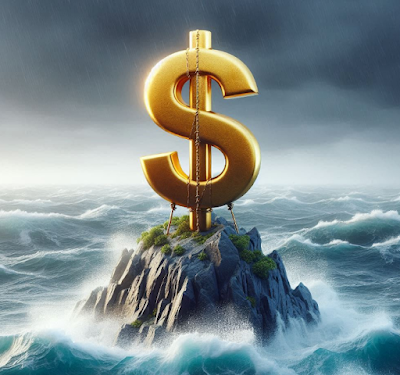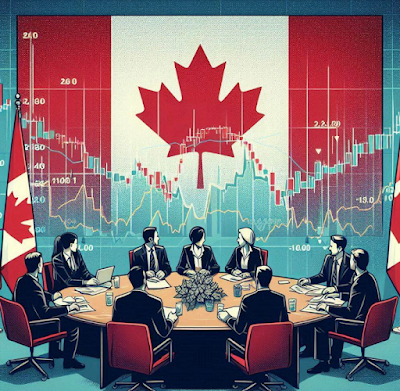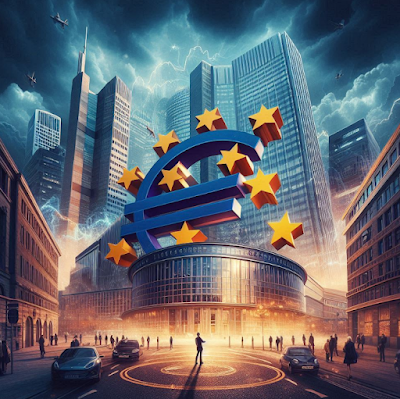The White Queen in Alice in Wonderland (Through the Looking Glass) confesses that when she was younger, she could believe six impossible things before breakfast. She encourages Alice to do the same. It appears many in the market are taking the Queen's advice too seriously.
Here is a quick thumbnail sketch of seven of our non-consensus views:
1. There is not a currency war. There is a type of arms control agreement in place. There have been plenty of opportunities for the ECB, the Bank of Canada, and the Reserve Bank of Australia to talk down their own currencies in recent weeks and they haven't. Japanese officials expressed more concern about the sharp appreciation of the yen but have not intervened. The difference between manipulating interest rates and manipulating currencies is the difference between a non-zero sum and zero-sum exercise.
2. There was no secret agreement at the February G20 meeting in Shanghai to drive the dollar lower. Why would it need to be secret? Other coordinated efforts to cap the dollar, both in 1985 and 2000 were not secret. Claims of secrecy now are the implicit recognition that there is no evidence. Moreover, there was no need for an effort to push the dollar down. It was declining on its own, thank you. The euro had bottomed in March 2015 below $1.05. Neither the ECB's asset purchases nor pushing the deposit rate deeper in negative territory succeeded in renewing the euro's downtrend. By the time the G20 met in Shanghai, the dollar was more than 10 yen lower than its peak in June 2015 near JPY126.
European and Japanese officials seem as surprised by their currencies strength as investors. The ECB did ease aggressively in March. All the measures announced then have not been implemented. Surely one need not posit a secret agreement to understand why the ECB did not ease in April. The Federal Reserve's caution after the December rate hike is also not a function of a secret agreement but an economic and risk assessment shared by all but one FOMC official who has now dissented at two consecutive meetings.
The BOJ surprised the world with negative interest rates at the end of January. It was criticized for not consulting with its G7 partners and for relying too much on monetary policy. Given the pattern of easing at the BOJ under Kuroda's leadership, easing policy again, three months after a new policy was introduced would have been unprecedented, which is perhaps why roughly 40% of the economists in a Bloomberg survey did not expect a move this week.
3. Institutional risk managers often think about risk in terms of capital that can be lost, which leads to some derivative of "value at risk" (VaR) models. When it comes to event risk, investors can learn from political scientists. This risk is a function of credibility (probability) multiplied by capability (impact). Over the past couple of weeks, opinion polls and event markets suggest the probability of Brexit has eased slightly.
Regardless of what side one is on, most recognize that the immediate impact could be dramatic if the EU is rejected. At best then this is a low-probability but high-risk event that can punish investors. If for the sake of the argument, the odds of Brexit are 1 in 4 then a prudent investor might consider hedging a quarter of their sterling exposure. Yet the potential impact can be so great (some see a 10-20% slide in sterling, a potential political crisis, and possible monetary accommodation), that some investors may consider a higher hedge ratio.
Keep in mind the calendar effect. The referendum poses contingent risk. Options are an efficient vehicle to address contingent risk. Since the start of the week, one does not need to buy three-month protection, and the volatility of three-month options has fallen. The referendum is within the two-month horizon. Two-month volatility has soared, and the put-call skew has grown.
4. Europe's problems are shaped by Germany's inability to act as a regional leader (hegemon). It is failing to deliver peace and/or prosperity. Its insistence on mercantilist policies aimed at extending its trade surplus can only borrow the aggregate demand created elsewhere. Its deflation (and fighting the ECB tooth-and-nail over its stimulative measures), despite an undervalued euro and negative interest rates, exacerbates the region's competitive challenge. If others do not have lower inflation than Germany, all else being equal, they lose competitiveness.
Germany's adulation for rules is particularly relevant when it comes to the behavior of others. Its current account surplus is not just criticized by the US, as some journalists would have it, but it violates EU rules and has been criticized by EU, ECB and IMF officials. As in other countries, domestic politics play an important role in formulating Germany's international positions. However, the rise of the AfD, like other anti-EU parties throughout Europe, cannot be fairly laid at the ECB's doorstep. Anti-immigration seems to be a more potent impetus than anti-EU per se, which helps explain the AfD's changed tactics and focus.
5. Monetary policy is not exhausted. Sun Tzu would advise against under-estimating a rival. It does not behoove investors to believe that central banks have run out of ammunition. It is a question of will not capabilities. Central banks make the rules. They can change them. For example, among the new initiatives, it is possible that the ECB lends money under certain, but likely, circumstances at negative rates. When and if the BOJ eases again, which we think they will, it too may offer some funds at a negative rate.
The fact that monetary policy is not exhausted does not mean that it is a panacea. Low rates without new public or private spending have a limited impact. Draghi and others have noted that the absence of structural reforms also hinders the impact of the easy monetary policy. There are costs, of course, of such easy monetary policy on a sustained basis. It does distort spending and saving incentives. Since the hurdle rate on investment is lower, it may encourage projects that would not look as attractive if rates were at pre-crisis levels. It may turn out that low rates are playing a role in weak productivity growth.
6. Fiscal policy is not exhausted. This is true from an economic point of view. The missing piece is political will. The scope for fiscal stimulus varies from country to country. For example, the EC wants Italy, which has not had an annual deficit more than 3% of GDP since 2011, to have a deficit of no more than 2.5% of GDP this year and 2% next year. Italy will be lucky to experience above 1.0%. Despite the decline in yields, the 10-year yield is still higher than GDP growth. The average maturity of its outstanding debt is closer to seven years. That yield is near 1.0%. Growth is too slow to reduce the debt. Would it be a crisis if Italy turned in a 2.7% budget deficit this year or a 3% if the extra funds were used for investment that would boost the growth potential or productivity? It might now be new spending but the reduction of some tax disincentive.
Many observers agree that the US and German infrastructure are in atrocious condition. Assuming that the infrastructure will not fix itself, it will have to be modernized at some point. It need not be an ideological debate. It is about practical business acumen. Do you want to borrow to fix infrastructure when US 30-year yields are at 2.7% and when German 30-year yields are at 1.0% or do you want to wait, say five years and risk substantially higher yields?
7. Capital flows are more important than trade flows. The BIS survey in 2013 is the last comprehensive and authoritative estimate of turnover in the foreign exchange market. It was $5 3 trillion a day. A recent news report noted a 20% decline in turnover in some electronic platforms. The report may say more about the platforms than foreign exchange turnover, where direct bank-to-bank dealing appears to be replacing some activity that may have previously done on a multi-bank platform.
The turnover in the foreign exchange market in one week is more than world trade in a year. For modern diversified economies, including the so-called commodity currencies like the Canadian and Australian dollars, capital flows swamp trade flows. It does not mean that the terms of trade do not matter. We can recognize the importance of terms of trade but seeing the impact through growth, investment and savings rather than focus simply on the price of a country's largest export.
Tags: AfD,Bank of Canada,newslettersent







































